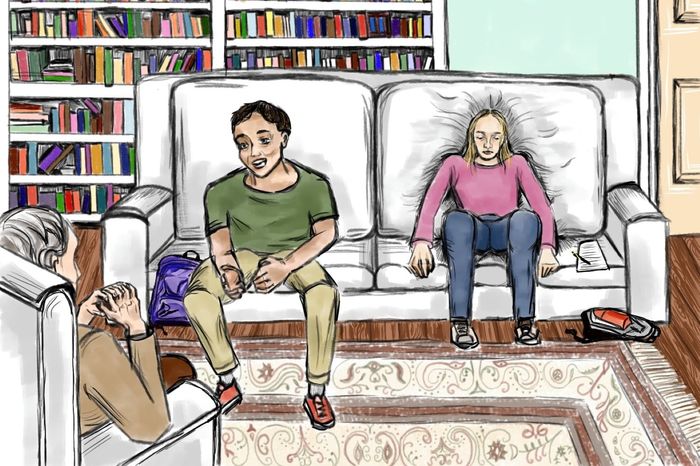Destigmatising Classics: opening up the ancient world to all
Calum Murray discusses the lack of classics education at state schools; speaking with students and academics about how classics can move out of elite circles, and be more inclusive.

“It was something that I was never taught at school.” Second year classicist Yasmin attended a state school, something which is true for just half of her classics cohort. Most of these state-educated classicists will have enrolled on the four-year course – on the three-year course, for which an A-level in Latin is needed, just over 40% will have attended a state school. This puts classics among the most independent-school dominated subjects at Cambridge. At the heart of this is the fact that 65% of independent schools offer Latin GCSE, compared to just 9% of state schools. In the words of Durham classics professor Arlene Holmes-Henderson, “that doesn’t seem fair.”
“In the words of Durham classics professor Arlene Holmes-Henderson, ‘that doesn’t seem fair’”
Holmes-Henderson forms part of a group of classicists committed to ensuring their beloved subject may be studied by all, not just the clever and wealthy. Lorna Robinson, director of the Oxford-based charity the Iris Project, which seeks to spread the teaching of classics to state schools, spelled out her motivation saying, “it [classics] is really interesting”. She continued, “I’ve been studying classics for a long time now, but barely a month will go by where I don’t encounter something and relate it to classics in some way.”
Caroline Bristow, director of the Education Faculty’s Cambridge School Classics Project, said “what I think is really important is a broad curriculum,” and that “what you tend to find is that students who cannot find subjects that resonate with them get turned off across the board.” Putting aside arguments about the inherent utility of studying classics, therefore, there is a social justice issue at play here, where students at independent schools have access to a broader curriculum. Potential classics-enthusiasts at state schools, of which Bristow was adamant there were many, are being deprived of the opportunity to find their future passion.
“Through the multifaceted nature of the discipline, Robinson thought that there were many ‘relatable’ aspects for students to discover”
Part of the reason why Briggs and Robinson were so sure that many state schoolers, if given the chance, would find something interesting to explore in classics was the subject’s inherent breadth. Eleanor, a second year classicist at Clare, said “it [classics] is examining a very specific society, but it holistically examines the society.” Through the multifaceted nature of the discipline, Robinson thought that there were many “relatable” aspects for students to discover. She gave the example of Catullus’ poetry, saying “he wrote these really delightful poems about, you know, inviting a friend around for dinner and being really excited about it.”
The picture painted here is in opposition to the stereotypes perpetuated by the uninitiated of a discipline devoted to the translation of dry, dated texts. Briggs felt that this sentiment stemmed from the historic narrowness of classics syllabuses. She said, “people often talk about widening our discipline, widening the content. I actually think that’s not quite right. What we’re doing is putting back the stuff that got left out.” She continued, “a really good example of this is LGBTQ content. Gay people existed in the ancient world, we’ve just chosen not to put them into the materials.” Her work aims to see classics used to talk about a broader array of themes, like sex and relationships, on which there is much relevant material, but material which, historically, has been understudied.
“Classics, Yasmin said, ‘should be destigmatised as a subject’”
Widening classics means moving beyond a focus on texts and teaching Latin. Material culture has a significant role to play here – Lorna said “not everybody finds texts accessible or engaging […] but most people can find some kind of joy and interest in holding an object that comes from ancient Rome and ancient Greece.” Cambridge proves a centre for this: Arlene said “I think we’re really spoiled by material culture, so museums have got a really important role to play here and the Cambridge Museum of Classical Archaeology is a fantastic example where innovative pedagogies take place.”
Classics as a discipline is horrifically undiverse and Yasmin and Eleanor recognised how off-putting this could be to people like them. Classics, Yasmin said, “should be destigmatised as a subject.” Doing this will require ensuring that people of any background or ability are able to engage with the richness of the discipline, in the hope that classics may one day stop being posh.
 Comment / Cambridge’s tourism risks commodifying students18 April 2025
Comment / Cambridge’s tourism risks commodifying students18 April 2025 News / Cambridge student numbers fall amid nationwide decline14 April 2025
News / Cambridge student numbers fall amid nationwide decline14 April 2025 News / Greenwich House occupiers miss deadline to respond to University legal action15 April 2025
News / Greenwich House occupiers miss deadline to respond to University legal action15 April 2025 Comment / The Cambridge workload prioritises quantity over quality 16 April 2025
Comment / The Cambridge workload prioritises quantity over quality 16 April 2025 News / Varsity ChatGPT survey17 April 2025
News / Varsity ChatGPT survey17 April 2025





